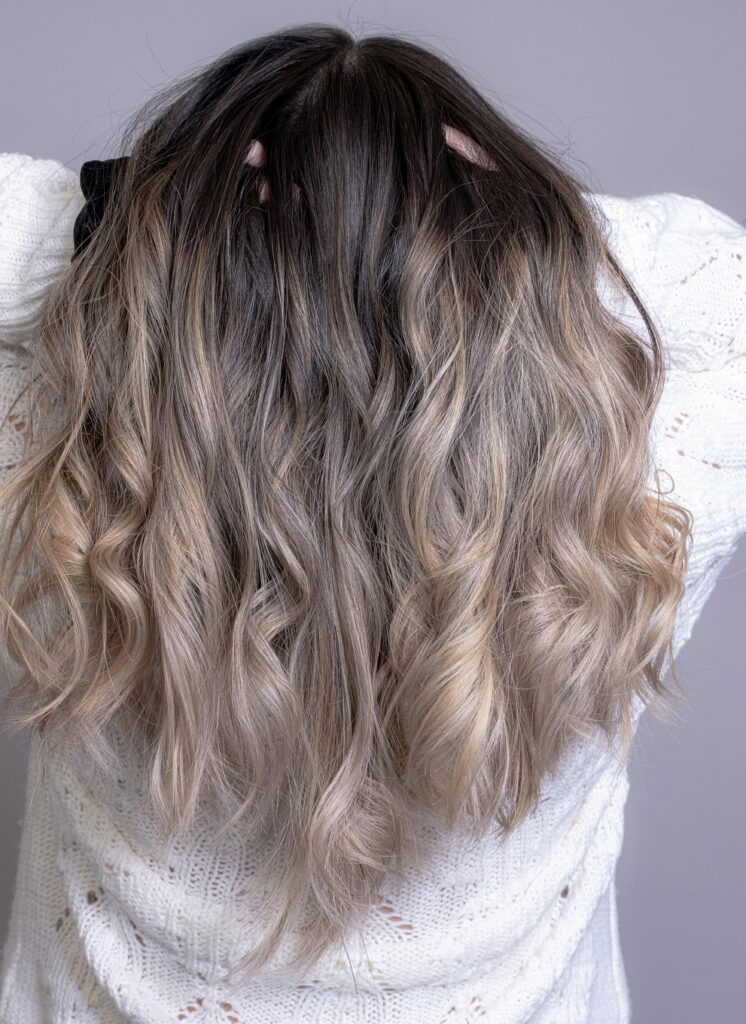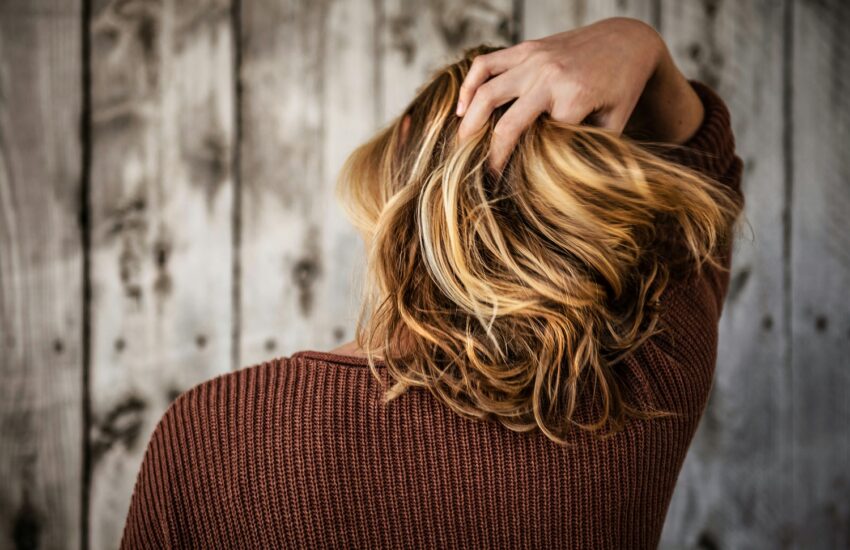Hair loss is a common concern that affects millions of people worldwide, regardless of age or gender. Whether it’s caused by genetics, hormonal imbalances, poor diet, stress, or other environmental factors, hair loss can be distressing and have a significant impact on an individual’s confidence. While some causes of hair loss are unavoidable, many others can be mitigated or prevented with proper care and lifestyle changes. In this article, Mohit Tandon from Burr Ridge will discuss 10 essential tips to prevent hair loss, each backed by scientific research and expert recommendations. By understanding the root causes of hair loss and taking proactive steps, you can improve the health of your hair and reduce the risk of hair thinning and shedding.
1. Maintain a Healthy Diet
One of the primary reasons for hair loss is poor nutrition. Your hair needs a variety of vitamins and minerals to stay healthy and grow strong. A balanced diet rich in essential nutrients can help prevent hair thinning and promote hair growth.
Key Nutrients for Healthy Hair:
- Biotin: Biotin, also known as Vitamin B7, is vital for healthy hair growth. It supports keratin production, the protein that makes up your hair. Biotin can be found in eggs, nuts, seeds, and avocados.
- Vitamin A: This vitamin helps regulate the production of sebum, the natural oil produced by your scalp. Foods rich in Vitamin A include carrots, sweet potatoes, and spinach.
- Iron: An iron deficiency can lead to hair thinning, especially in women. Include iron-rich foods like spinach, lentils, red meat, and fortified cereals in your diet.
- Omega-3 Fatty Acids: Omega-3s are essential for scalp health and reduce inflammation that can lead to hair loss. Foods like salmon, chia seeds, and walnuts are great sources of omega-3s.
Eating a balanced diet that includes these nutrients ensures that your hair follicles are nourished, promoting stronger, healthier hair.
2. Manage Stress Effectively
Chronic stress is one of the leading causes of hair loss, as it triggers the release of cortisol, a hormone that can disrupt hair growth. Stress can cause hair to enter the telogen (resting) phase of the hair growth cycle prematurely, leading to hair shedding.
Stress Management Techniques:
- Meditation: Practicing mindfulness meditation can help calm the mind and reduce stress levels. Regular meditation can improve mental health and prevent stress-related hair loss.
- Exercise: Physical activity boosts blood circulation, reduces stress hormones, and increases the production of endorphins, which can help promote overall well-being.
- Yoga: Yoga combines physical postures with breathing exercises, which can help reduce stress and improve mental clarity. – Mohit Tandon Burr Ridge
- Adequate Sleep: Getting enough sleep is crucial for managing stress and allowing the body to recover and regenerate. Aim for 7-9 hours of quality sleep each night.
By incorporating stress management techniques into your routine, you can help prevent hair loss and maintain a calm, balanced state of mind.
3. Avoid Heat Styling and Harsh Chemical Treatments
Frequent use of heat styling tools and exposure to harsh chemical treatments can damage the hair shaft and weaken hair follicles, leading to breakage and thinning.
Alternatives to Heat Styling:
- Air Drying: Whenever possible, allow your hair to air dry instead of using a blow dryer. If you must use heat tools, make sure to use them on the lowest setting and apply a heat protectant spray.
- Gentle Styling: Instead of tight hairstyles that can cause stress on the hair (such as ponytails or braids), opt for loose, gentle styles that don’t pull on the hair follicles.
- Chemical-Free Hair Care: Use sulfate-free shampoos and conditioners that are free from harsh chemicals like parabens and silicones. Opt for natural, organic products whenever possible.
Limiting your exposure to heat and chemicals helps reduce hair damage and promotes healthier hair growth.
4. Keep Your Scalp Clean and Healthy
A clean and healthy scalp is essential for preventing hair loss. The scalp is where hair follicles are located, so it’s important to keep the environment around them free from dirt, oil, and product buildup.
Scalp Care Tips:
- Shampoo Regularly: Wash your hair regularly to remove excess oil and dirt from your scalp. However, avoid over-washing, as this can strip the scalp of its natural oils.
- Exfoliate the Scalp: Exfoliating the scalp once a week helps remove dead skin cells and unclog hair follicles, promoting healthy hair growth.
- Avoid Harsh Scrubbing: When washing your hair, avoid aggressively scrubbing your scalp, as this can irritate the skin and lead to hair shedding.
By maintaining a clean, healthy scalp, you create the ideal environment for your hair to grow strong and thick.

5. Protect Your Hair from Environmental Damage
Exposure to environmental factors such as pollution, UV rays, and harsh weather conditions can weaken your hair and lead to hair loss.
Protective Measures:
- Wear a Hat: Protect your hair from direct sunlight and UV rays by wearing a hat or scarf when outdoors. UV rays can damage the hair shaft, causing it to become dry and brittle.
- Use UV Protection Products: Just like your skin, your hair can benefit from UV protection. Look for hair care products that contain UV filters to protect your strands from sun damage.
- Avoid Pollution Exposure: Pollution can deposit harmful particles onto your scalp and hair, leading to hair weakening and thinning. Washing your hair after exposure to pollution can help minimize damage.
Taking steps to shield your hair from environmental damage helps preserve its health and prevent premature hair loss.
6. Be Gentle with Your Hair
Physical trauma, such as rough handling or tugging at the hair, can lead to breakage and hair thinning. Treating your hair gently is crucial for maintaining its strength.
Gentle Hair Care Tips:
- Use a Wide-Tooth Comb: Avoid brushing wet hair with a fine-tooth comb or brush, as this can cause breakage. Instead, use a wide-tooth comb to gently detangle your hair.
- Avoid Tight Hairstyles: Tight ponytails, braids, or buns can cause traction alopecia, a type of hair loss caused by excessive tension on the hair follicles.
- Dry Your Hair Gently: After washing your hair, pat it dry with a soft towel instead of rubbing it aggressively.
By handling your hair with care, you can prevent unnecessary damage and help preserve its health and volume.
7. Use Natural Hair Oils and Treatments
Many natural oils have been used for centuries to nourish and promote hair growth. These oils can help moisturize the scalp, improve circulation, and strengthen hair follicles.
Popular Natural Oils for Hair Care:
- Coconut Oil: Coconut oil is rich in fatty acids that penetrate the hair shaft and nourish the hair from within. It also has antimicrobial properties that can help maintain a healthy scalp.
- Argan Oil: Known for its moisturizing properties, argan oil can help reduce frizz and make hair more manageable, while also protecting it from damage.
- Castor Oil: Castor oil is believed to promote hair growth and thicken hair due to its high content of ricinoleic acid. It also helps improve circulation to the scalp.
Regularly massaging these oils into your scalp and hair can help prevent hair loss and promote healthy, vibrant hair.
8. Consult a Dermatologist for Hair Loss Concerns
If you’re experiencing significant hair loss, it’s important to consult with a dermatologist or a trichologist (a specialist in hair and scalp disorders). A professional can help identify the underlying causes of your hair loss and recommend appropriate treatments.
Medical Solutions:
- Prescription Treatments: In some cases, dermatologists may prescribe medications like minoxidil (Rogaine) or finasteride (Propecia) to help prevent further hair loss and stimulate regrowth.
- Hair Restoration Procedures: For those with advanced hair loss, surgical options like hair transplants may be considered.
A dermatologist can provide personalized guidance and treatment options to address your specific hair loss concerns.
9. Avoid Smoking and Excessive Alcohol Consumption
Smoking and excessive alcohol consumption are known to have negative effects on overall health, including hair health. Smoking restricts blood flow to the scalp, reducing the nutrients available for hair growth, while alcohol dehydrates the body, leading to brittle, weak hair. – Mohit Tandon Burr Ridge
Healthy Lifestyle Choices:
- Quit Smoking: If you smoke, consider quitting to improve your overall health and reduce the risk of hair loss.
- Limit Alcohol: Excessive alcohol consumption can dehydrate your scalp and hair. Limit alcohol intake to maintain healthy hair.
By adopting a healthier lifestyle, you can protect your hair and prevent damage from lifestyle-related factors.
10. Regular Exercise and Improved Circulation
Exercise is not only important for overall health, but it also plays a key role in promoting hair growth. Regular physical activity helps improve circulation, which ensures that your hair follicles receive an adequate supply of oxygen and nutrients.
Exercise Tips:
- Cardio Workouts: Activities like jogging, cycling, or swimming help boost blood flow throughout the body, including to the scalp.
- Strength Training: Weightlifting and other strength-training exercises help improve circulation and overall vitality.
- Consistency: Aim for at least 30 minutes of moderate exercise most days of the week.
Regular exercise can help improve the health of your hair by ensuring that your scalp receives the nutrients it needs to thrive.
Conclusion
Preventing hair loss requires a holistic approach that includes a combination of healthy lifestyle choices, proper hair care practices, and attention to underlying health conditions. By following these 10 tips, you can reduce the risk of hair thinning and maintain healthy, strong hair for years to come. Whether it’s improving your diet, managing stress, or seeking professional help, proactive steps can make a significant difference in your hair health.
